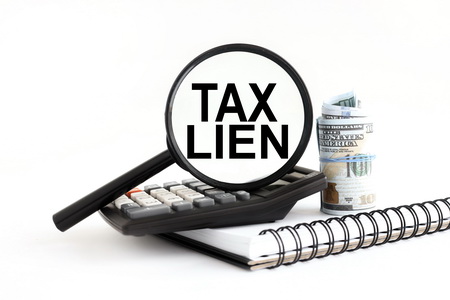All Categories
Featured
Table of Contents
In numerous instances, you will certainly need to outbid various other capitalists by supplying to pay a higher costs (real estate tax lien investments for tax-advantaged returns). This premium is typically less than the actual amount of tax obligations owed, yet it depends on the investor to choose if the danger is worth the collection benefit. In a lot of areas, home tax obligations are around one percent of the residential property's worth

Tax lien investors make their cash on the interest repayments they collect when the homeowner pays back the tax obligations they owe. In some areas, these rates of interest are as high as 18 percent, which is greater than the ordinary debt card rate of interest. Building proprietors can pay what they owe all at as soon as, or they can go on a layaway plan ranging from one to 3 years.
Tax Lien Investment
In the above example, someone with an impressive tax financial obligation of $4k (two years of back taxes) would certainly be supplying a tax obligation lien holder with possibly approximately $720 in rate of interest repayments, dealing with the 18 percent rates of interest we mentioned earlier. One of the biggest benefits to tax lien capitalists is the possible to obtain a brand-new residential or commercial property for their realty profile, without needing to pay its market value.

It's a win-win scenario for the tax lien capitalist. There are some disadvantages to tax lien investing.
As soon as the lien is paid, the capitalist must carry on and try to find a brand-new investment. Of course, if the homeowner is still in default, the lien owner will certainly obtain the building, which might become a recurring income source. A person who buys a tax obligation lien might locate themselves entangled with other liens on the building, particularly if they end up claiming the residential property in case the debt goes unsettled.
This might cause great deals of legal battles, which is why it is necessary to collaborate with attorneys and tax obligation advisors who understand things like act vs title. and can assist with carrying out due persistance on a building. The legislations around tax obligation lien investing (and relevant issueslike foreclosing on lessees) are not uniform across states that supply capitalists the capacity to take part in a tax obligation lien sale.
Considered that tax obligation liens are usually sold at auction, competing bidders will certainly bid up the premium and bid down the rates of interest that can be accumulated on the unpaid taxes. The victor of the auction will certainly be the investor that is paying the highest premium and obtaining the cheapest rate of interest in return.
Invest In Tax Liens Online
In this capillary, tax obligation lien investing is a little a lot more sport-like than standard passive ways of making earnings. The first thing you'll want to do is obtain acquainted with the area you're thinking about in regards to the actual estate market. Bear in mind that one upside of becoming a lienholder is collecting the residential property if the financial debt goes overdue, so you will require to understand where that residential property is.
Once you have actually found out these information out, you need to call your neighborhood region treasurer's workplace to locate out when and where the following tax lien auction is being held. These auctions are commonly kept in individual, yet in today's day and age, a lot of have actually transitioned to online locations.

A lot of neighborhood papers release these listings annually or semiannually. This can give you a good idea regarding upcoming opportunities. Remember that real estate tax are normally one percent of the building value, however unpaid taxes collecting over numerous years could be a much more sizable amount. You can take advantage of your very own money reserves or check out choices like genuine estate crowdfunding to acquire the capital you require.
The Truth About Tax Lien Investing
it has the added perk of getting the home if the financial debt stays overdue. While it can be a lucrative opportunity for the investor, it does call for some tactical maneuvering. Tenants and homeowner do have lawful defenses that make tax lien spending an extra involved procedure than simply bidding to purchase a financial debt and waiting to accumulate the repayment.
Investing in tax liens includes acquiring a legal insurance claim on a residential or commercial property because of unpaid real estate tax. This approach of investing has actually gotten appeal as a result of its capacity for high returns with reasonably low first funding. Tax obligation liens are usually sold at auctions, and the procedure can vary relying on the place.

Investors seek tax liens for several factors: 1. Reduced First Investment: Tax lien spending usually needs a small quantity of cash to start, making it obtainable to a large range of capitalists. Some tax liens can be purchased for just a couple of hundred bucks. 2. High Returns: The rates of interest on tax liens can be considerably greater than standard financial investment returns.
Tax Lien Investing Tips
Property Purchase: If the residential property owner stops working to pay the past due tax obligations and interest within the redemption duration, the financier might have the right to confiscate and obtain the home. When capitalists buy a tax lien, they pay the past due taxes on a property and obtain a tax obligation lien certification.
There are two prospective results: 1. Settlement by the Homeowner: The homeowner pays back the overdue tax obligations plus passion within a specific period, and the investor receives the repayment with rate of interest. This is one of the most typical outcome. 2. Repossession: If the homeowner does not settle the taxes within the redemption duration, the financier can initiate foreclosure procedures to acquire the property.
The self-directed IRA acquisitions the lien certification and pays associated charges. Tax Lien: The federal government markets a lien on the building due to overdue taxes.
Tax Lien Investing 101
Tax Action: The government offers the real act to the building at auction. According to the National Tax Lien Association (NTLA), 36 states and 2,500 territories within the US allow for the sale of tax obligation liens, while only 31 states allow tax act sales.
Table of Contents
Latest Posts
Excess Funds
Delinquent Tax Auction
Investing In Tax Liens Certificates
More
Latest Posts
Excess Funds
Delinquent Tax Auction
Investing In Tax Liens Certificates